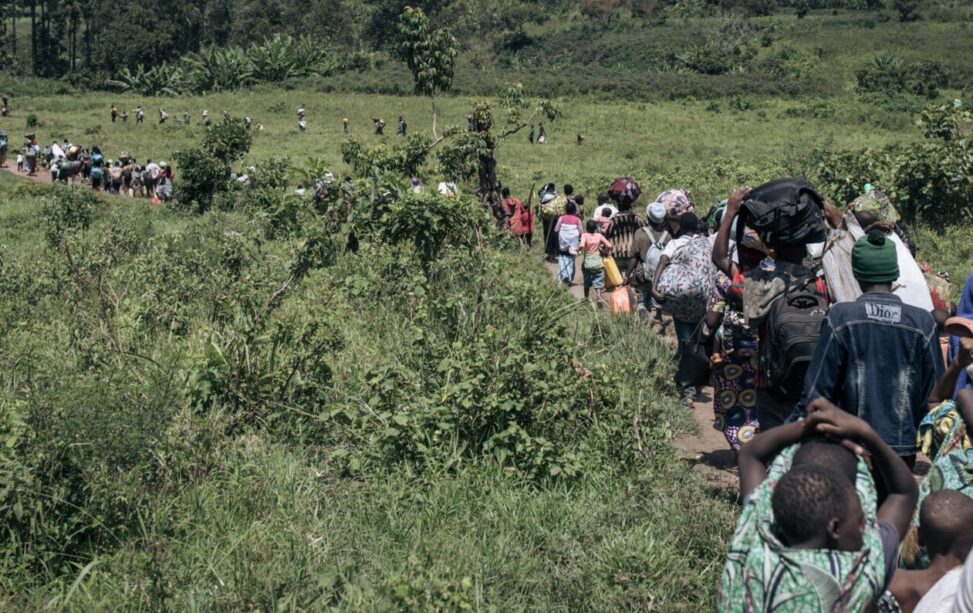All For Rwanda expresses its deepest concern and strongly condemns the ongoing massacres of civilians in several localities of the Rutshuru territory, in the Democratic Republic of Congo (DRC), perpetrated by elements of the M23-AFC, militarily supported by the Rwandan Defence Forces (RDF).
According to information published by the United Nations Joint Human Rights Office (UNJHRO), at least 169 civilians were killed between 9 and 14 July 2025 in deliberate attacks against Hutu farmers who had returned to their fields following a promise of safety issued by the M23. These individuals were surrounded, executed by firearm or bladed weapons, and their bodies abandoned in rivers and agricultural zones. This information has been corroborated by local testimonies, including those collected by the Collective of Victims of the Rwandan Aggression (CVAR), which reports over 200 civilians killed during the month of July in the groupements of Binza, Kiseguro, Katwiguro, Kasave, Nyabanira, and Nyamilima.
Among the victims are numerous Rwandan Hutu refugees who have been residing in this region since 1994 and who currently live in extreme vulnerability. The United Nations High Commissioner for Refugees (UNHCR) officially estimated their number at 201,238 in June 2025, while acknowledging that this figure is significantly underestimated. Our own estimates place the number at over 500,000, including unregistered individuals, stateless persons, and those forced to live under false identities to escape persecution.
These crimes are neither isolated nor accidental. The Final Report of the United Nations Group of Experts on the DRC (4 June 2024) clearly established that: “The M23 and the RDF specifically targeted localities predominantly inhabited by Hutus (…), such as the localities and groupements of Bukombo, Burambo and Nyanzalé in the Bwito chefferie, and Busanza in the Bwisha chefferie, all in Rutshuru territory; numerous executions and destruction of villages were reported (…). These forms of collective punishment inflicted upon civilians are acts subject to sanctions and may constitute war crimes.”
The elements currently observed—including the repeated nature of the attacks, the specific ethnic targeting, the promise of security followed by premeditated massacres, the systematic destruction of Hutu villages, and the apparent intent to empty certain areas of their population—are indicative of a deliberate strategy of ethnic cleansing, if not more.
Under international criminal law, these acts clearly fall within the scope of:
- War crimes (Article 8 of the Rome Statute),
- Crimes against humanity (Article 7),
- And may meet the legal criteria of genocide (Article 6), particularly if it is established that the violence aims to destroy, in whole or in part, a specific ethnic group—in this case, Hutu populations, whether Congolese or Rwandan refugees.
This extremely grave situation arises at a time when hope for peace had been rekindled by the signing of the Washington Agreement (27 June 2025) between the DRC and Rwanda, and by the engagement of the M23-AFC in the Doha process. It is, however, illusory to build sustainable regional peace by ignoring such crimes or by marginalizing the populations who suffer from them.
All For Rwanda solemnly calls on:
- The United Nations High Commissioner for Human Rights, the UN Security Council, the International Criminal Court, the Government of the Democratic Republic of Congo, and the guarantor States of the peace processes to launch an independent international investigation into the massacres committed in Rutshuru;
- The UNHCR to immediately revise its exclusionary policy toward Rwandan refugees, by involving them in decisions that concern them and ensuring their effective protection;
- The United States, Qatar, the African Union, the Southern African Development Community (SADC), and the East African Community (EAC) to make all political or security progress conditional upon the cessation of targeted violence and the explicit recognition of the Rwandan refugee issue as a central political challenge in the peace processes;
- The Government of Rwanda to engage in a structured dialogue with its exiled citizens, which constitutes an indispensable condition for any dignified and lasting solution to their return.
No peace can be achieved on the silenced blood of an exiled people. No stability can emerge without justice for the victims.
Source: All for Rwanda
Photo: Civilians in the Rutshuru territory fleeing an attack by the M23 (AFP – Alexis Huguet)
UN accuses M23 rebels in DR Congo of killing scores of civilians (africanews, 07.31.2025)
